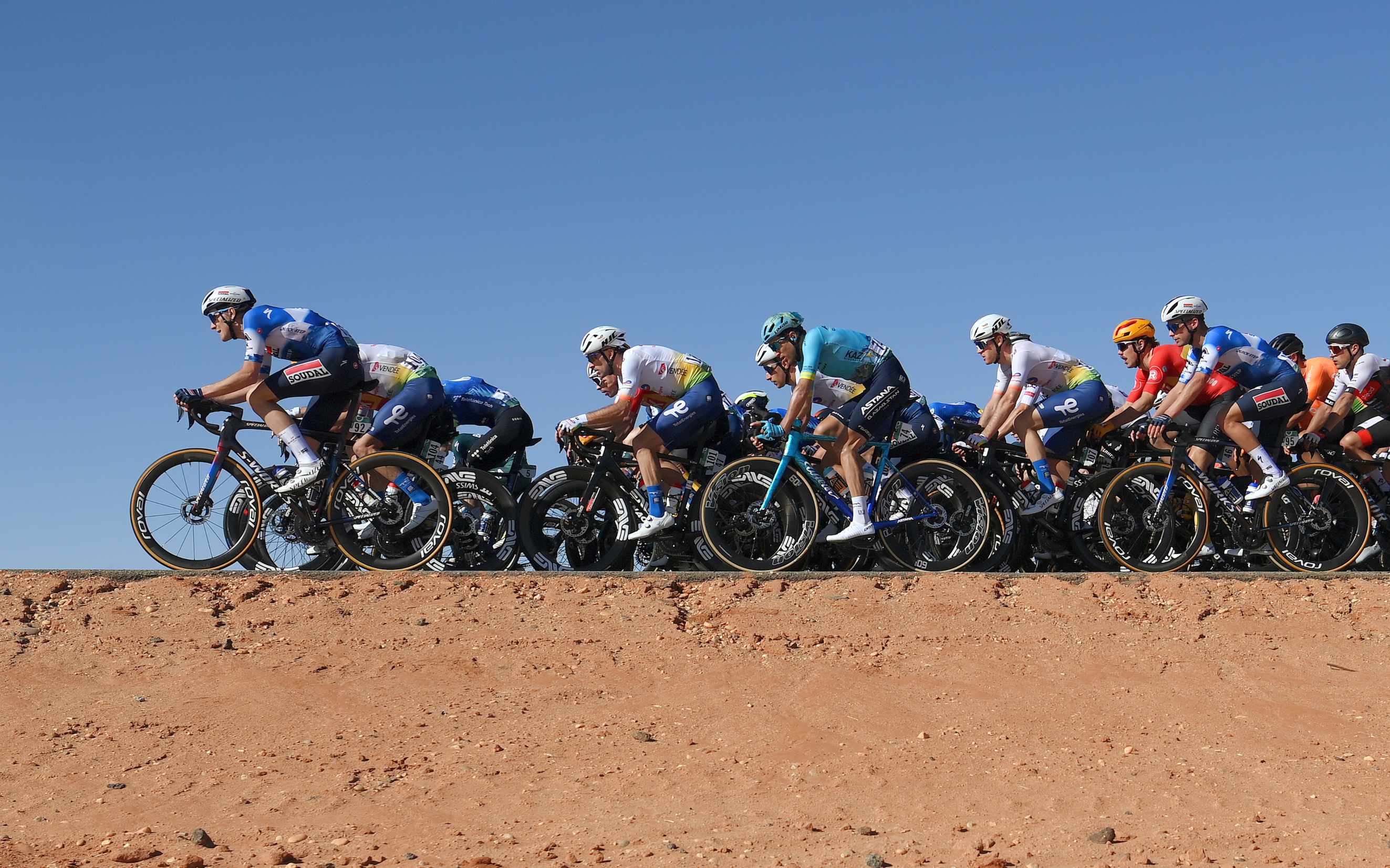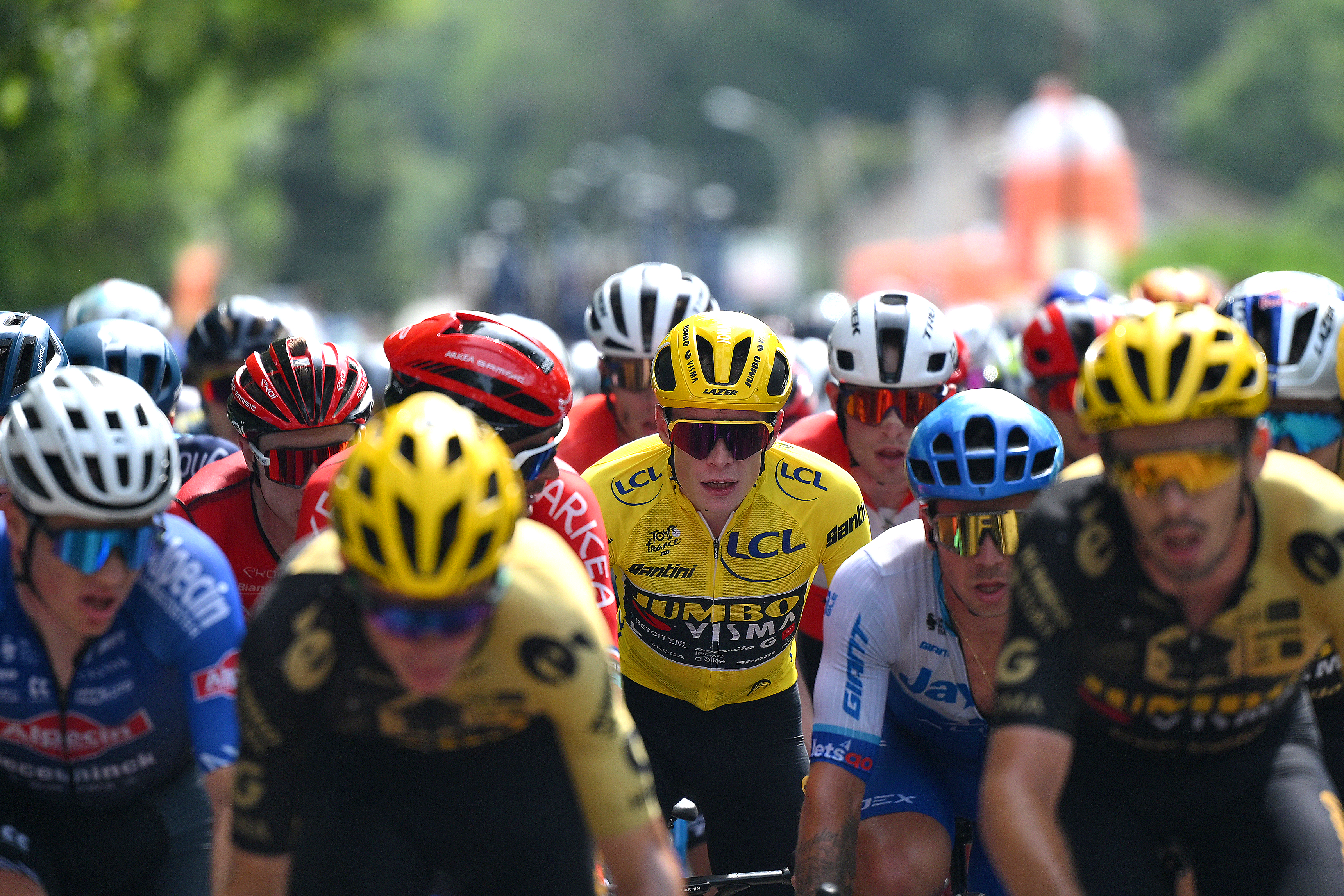
Revolution is afoot in the world of cycling. Talk of a new project has been brewing since October 2023, with the top teams ready to shake up the sport’s business model.
If the idea takes off, professional cycling as we know it could be turned on its head, with new events added to the calendar and a new hierarchy.
Here’s everything we already know about the proposed One Cycling league, and the rumours that surround it.

What is it?
One Cycling is a proposed new ‘super league’, spearheaded by the sport’s top teams, with the goal of creating new revenue streams.
Its backers hope it will launch in 2026, when the next WorldTour cycle commences, with new Formula 1 style events.
Who is involved?

According to reports, Visma-Lease a Bike managing director Richard Plugge and Soudal Quick-Step owner Zdeněk Bakala are among the leading advocates for the new league.
A total of eight teams are said to be included in the project's talks, but they have not been named publicly. Ineos Grenadiers, Lidl-Trek, Movistar and EF Education-EasyPost are reportedly involved.
ASO, the organiser of the Tour de France and the Vuelta a España, and RCS, the organiser of the Giro d’Italia, are understood to not currently be on board. The team behind the Tour of Flanders, Flanders Classics, is involved.
Who is in charge?

The project is currently open to investors, with Saudi Arabia’s Public Investment Fund (PIF) said to be the frontrunner to take on the backing, according to a report in Reuters.
Founded in August 2023, the kingdom-based firm SRJ Sports Investments is said to be in negotiations, with a deal worth $270m (€250m, £214m) potentially ready to be finalised around April.
If a deal is reached, One Cycling will form part of Saudi Arabia’s Vision 2030 plan, which includes a sports investment strategy aimed to boost the country’s global influence. The country has already invested vast sums in golf, football and Formula 1.
Will it be positive for cycling?
The idea for the new league, fathomed by some of the sport’s most successful teams, stems from a concern that an unfair share of race profits goes to the organisers.
If it gets up and running, One Cycling will likely bring new events to the calendar, and could see teams and riders earn more money to support their growth. Currently, teams rely primarily on their own sponsors for income.
Speaking to Reuters, Visma-Lease a Bike managing director Plugge said: “It’s obvious that cycling is a sleeping giant and deserves an improved business model. For all stakeholders, but especially for WorldTour teams. The only way to get there is by cooperation.”
Teams also hope it will give them more say in how races rules are applied. Speaking to Cyclingnews, Movistar boss Eusebio Unzue floated the idea of rider substitutions: "Why don’t we allow substitutions, at least in the first week of a Grand Tour? We lost Enric [Mas] on the first day [of the Tour de France 2023] to a crash. So why not at least allow us to replace him and have eight riders on the team?
"I think almost all sports develop, whereas we’re still doing the same things we’ve always been doing. Since I started in the 1980s, the rules of cycling have changed very little, and I think you need to adapt to the current time. "
Why might some people be against it?

One of the big stumbling blocks One Cycling faces is the Tour de France. It would be surprising to see ASO relinquish its power to the new project, and as long as the Tour organiser refuses to cooperate, cycling’s most popular race will stand as a rival event to One Cycling. Fans will almost certainly side with the Tour.
It is also possible the new project will cost cycling fans more to enjoy racing. Its central goal is to generate more income for teams, be that through broadcast packages or ticketed race experiences. As former UCI president Brian Cookson wrote on X, formerly Twitter: “Profits come ultimately from consumers paying to buy a commodity… That’s you, the cycling fan.”
Some critics might also be against Saudi Arabia’s potential involvement, with the kingdom accused of using sporting investments, like this and also LIV Golf, to distract from its human rights record.
Has this happened before?
There have been attempts to create breakaway cycling leagues in the past, but not to any long-lasting effect.
In 2012, a similar concept to One Cycling was floated in the World Series Cycling (WSC). It involved eight teams, who proposed a new calendar alongside some of the existing big races. WSC ultimately failed to get off the ground.
In 2014, 11 teams joined forces to create Velon, an organisation hoping to create greater stability within the sport by providing more commercial and marketing opportunities. Velon later created the Hammer Series, an attempt by the teams to organise their own races and take power away from cycling's governing body, the UCI, and the bigger race organisers. It was scrapped in 2020.







